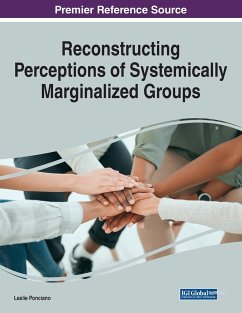Despite their best intentions, professionals in the helping fields are influenced by a deficit perspective that is pervasive in research, theory, training programs, workforce preparation programs, statistical data, and media portrayals of marginalized groups. They enter their professions ready to fix others and their interactions are grounded in an assumption that there will be a problem to fix. They are rarely taught to approach their work with a positive view that seeks to identify the existing strengths and assets contributed by individuals who are in difficult circumstances. Moreover, these professionals are likely to be entirely unaware of the deficit-based bias that influences the way they speak, act, and behave during those interactions. Reconstructing Perceptions of Systemically Marginalized Groups demonstrates that all individuals in marginalized groups have the potential to be successful when they are in a strengths-based environment that recognizes their value and focuses on what works to promote positive outcomes, rather than on barriers and deficits. Covering key topics such as education practices, adversity, and resilience, this reference work is ideal for industry professionals, administrators, psychologists, policymakers, researchers, academicians, scholars, instructors, and students.
Bitte wählen Sie Ihr Anliegen aus.
Rechnungen
Retourenschein anfordern
Bestellstatus
Storno









